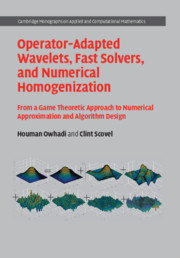Refine search
Actions for selected content:
8 results

Machine Learning in Quantum Sciences
-
- Published online:
- 13 June 2025
- Print publication:
- 12 June 2025
9 - Machine learning with classical data
- from Part I - Areas of application
-
- Book:
- Quantum Algorithms
- Published online:
- 03 May 2025
- Print publication:
- 24 April 2025, pp 148-184
-
- Chapter
-
- You have access
- Open access
- Export citation
Recent kernel methods for interacting particle systems: first numerical results
- Part of
-
- Journal:
- European Journal of Applied Mathematics / Volume 36 / Issue 2 / April 2025
- Published online by Cambridge University Press:
- 11 November 2024, pp. 464-489
-
- Article
-
- You have access
- Open access
- HTML
- Export citation
6 - Schemes for Computing Extracellular Potentials
-
- Book:
- Electric Brain Signals
- Published online:
- 30 May 2024
- Print publication:
- 06 June 2024, pp 129-157
-
- Chapter
- Export citation
13 - Kernel Methods
-
- Book:
- Introduction to Environmental Data Science
- Published online:
- 23 March 2023
- Print publication:
- 23 March 2023, pp 440-472
-
- Chapter
- Export citation
7 - Classifiers and Tools
- from Part III - Classifiers and Tools
-
- Book:
- Essentials of Pattern Recognition
- Published online:
- 08 December 2020
- Print publication:
- 19 November 2020, pp 143-172
-
- Chapter
- Export citation

Operator-Adapted Wavelets, Fast Solvers, and Numerical Homogenization
- From a Game Theoretic Approach to Numerical Approximation and Algorithm Design
-
- Published online:
- 10 October 2019
- Print publication:
- 24 October 2019
Interval and band estimation for curves with jumps
- Part of
-
- Journal:
- Journal of Applied Probability / Volume 41 / Issue A / 2004
- Published online by Cambridge University Press:
- 14 July 2016, pp. 65-79
- Print publication:
- 2004
-
- Article
- Export citation
